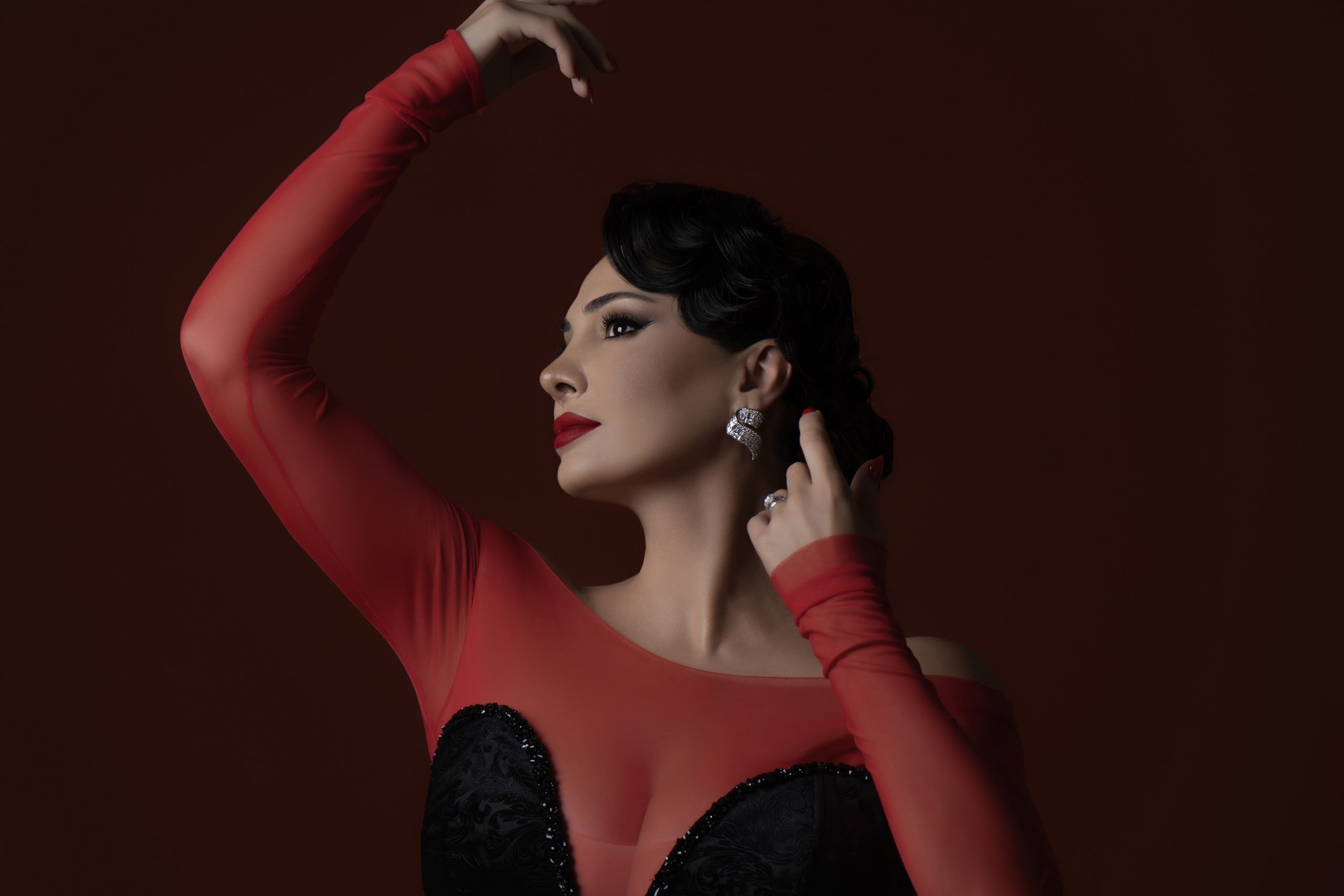Hasmik Torosyan, soprano, was born in Yerevan, Armenia. She graduated from the Romanos Melikyan Musical College and the Komitas State Conservatory. She is a laureate of numerous competitions, including the Republican Competition after G. Gasparyan (First Prize and Gold Medal, 2008), the Bella Voce International Music Competition in Moscow (First Prize, 2010), the Musica Sacra International Music Competition in Rome (First Prize, 2011), as well as the President’s Prize of Armenia (2009) and several national awards. Since 2011, she has been a principal soloist of the Armenian National Academic Opera and Ballet Theater. Her operatic repertoire encompasses major bel canto and lyric soprano roles such as Violetta (La traviata), Gilda (Rigoletto), Lucia (Lucia di Lammermoor), Norina (Don Pasquale), Adina (L’elisir d’amore), the Queen of the Night (Die Zauberflöte), Musetta and Mimì (La Bohème), Susanna (Le nozze di Figaro), Marie (La fille du régiment), Amina (La sonnambula), Leïla (Les pêcheurs de perles), Fiorilla (Il turco in Italia), Nedda (Pagliacci), and Anoush (Anoush by A. Tigranyan). She also regularly performs concert repertoire, including Mozart’s Requiem and Mass in C minor, Beethoven’s Mass in C major, Haydn’s Nelson Mass, and Rossini’s Petite messe solennelle. Torosyan has appeared at prestigious venues such as the Glyndebourne Festival, Rossini Opera Festival, Teatro Comunale di Bologna, Teatro Regio di Torino, Teatro Colón Buenos Aires, Hamburg State Opera, Flemish Opera Antwerp, Teatro Regio di Parma, Teatro Verdi Salerno, Tokyo New National Theatre, Théâtre des Champs-Élysées in Paris, Philharmonie de Paris, and Boston Symphony Hall. Her recent and upcoming engagements include role debuts as Amenaide in Rossini’s Tancredi at Teatro dell’Opera di Roma, Liù in Puccini’s Turandot at Teatro di San Carlo in Naples, and Giulia in Rossini’s La scala di seta at the Rossini Opera Festival in Pesaro. Recent highlights also include Rossini’s Stabat Mater with the Tokyo Symphony Orchestra at Suntory Hall and Muza Kawasaki Symphony Hall, La traviata at the Caracalla Festival, a bel canto concert at the Rossini Opera Festival in Pesaro, and Les pêcheurs de perles at the Maggio Musicale Fiorentino.










